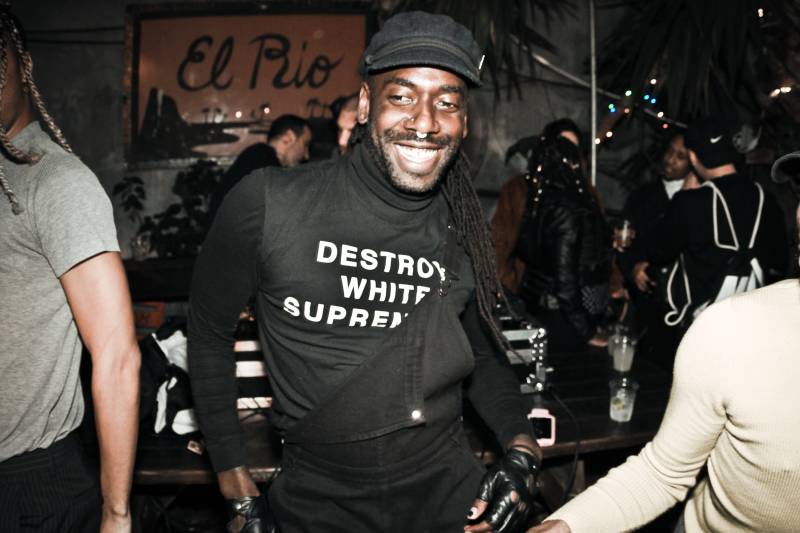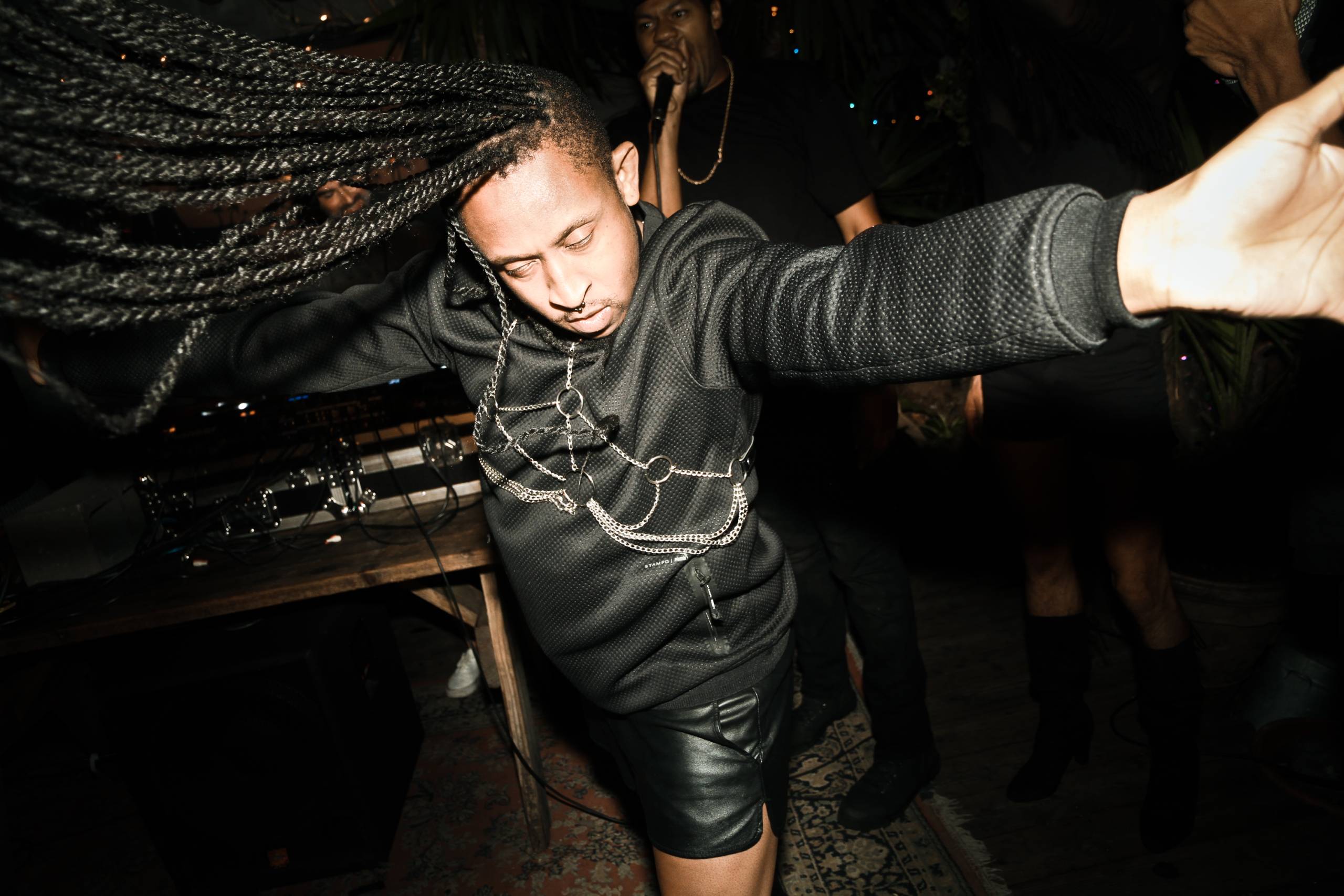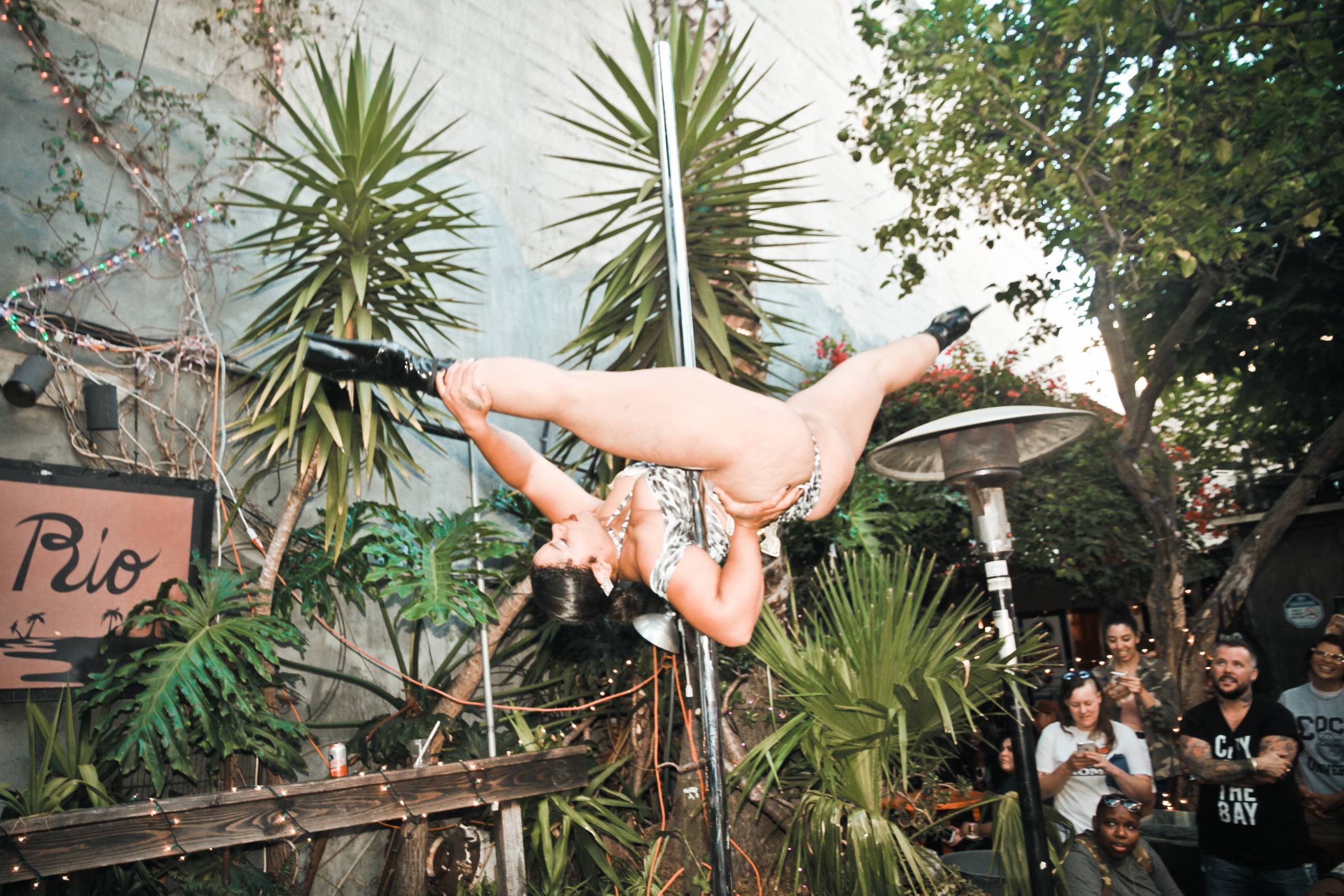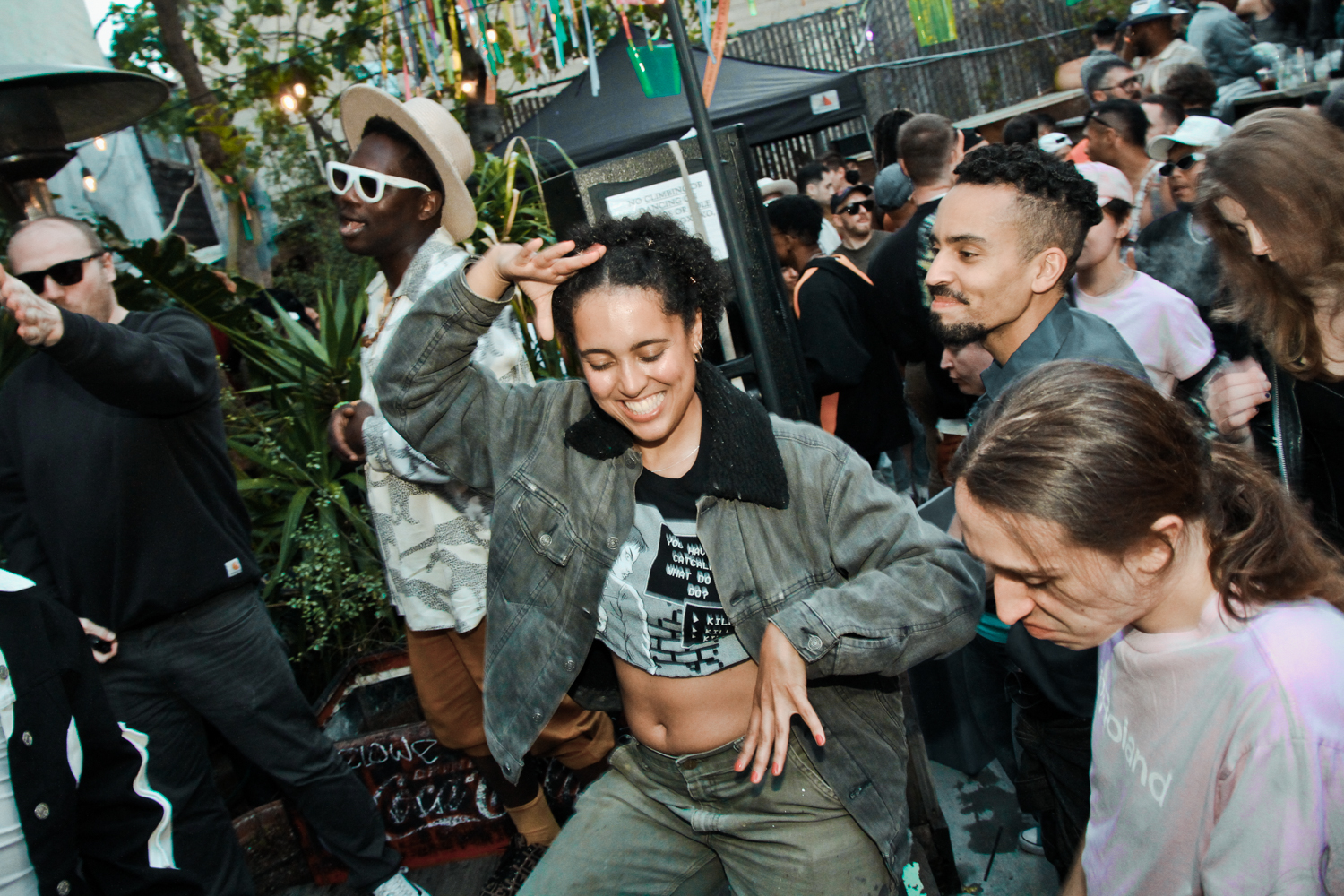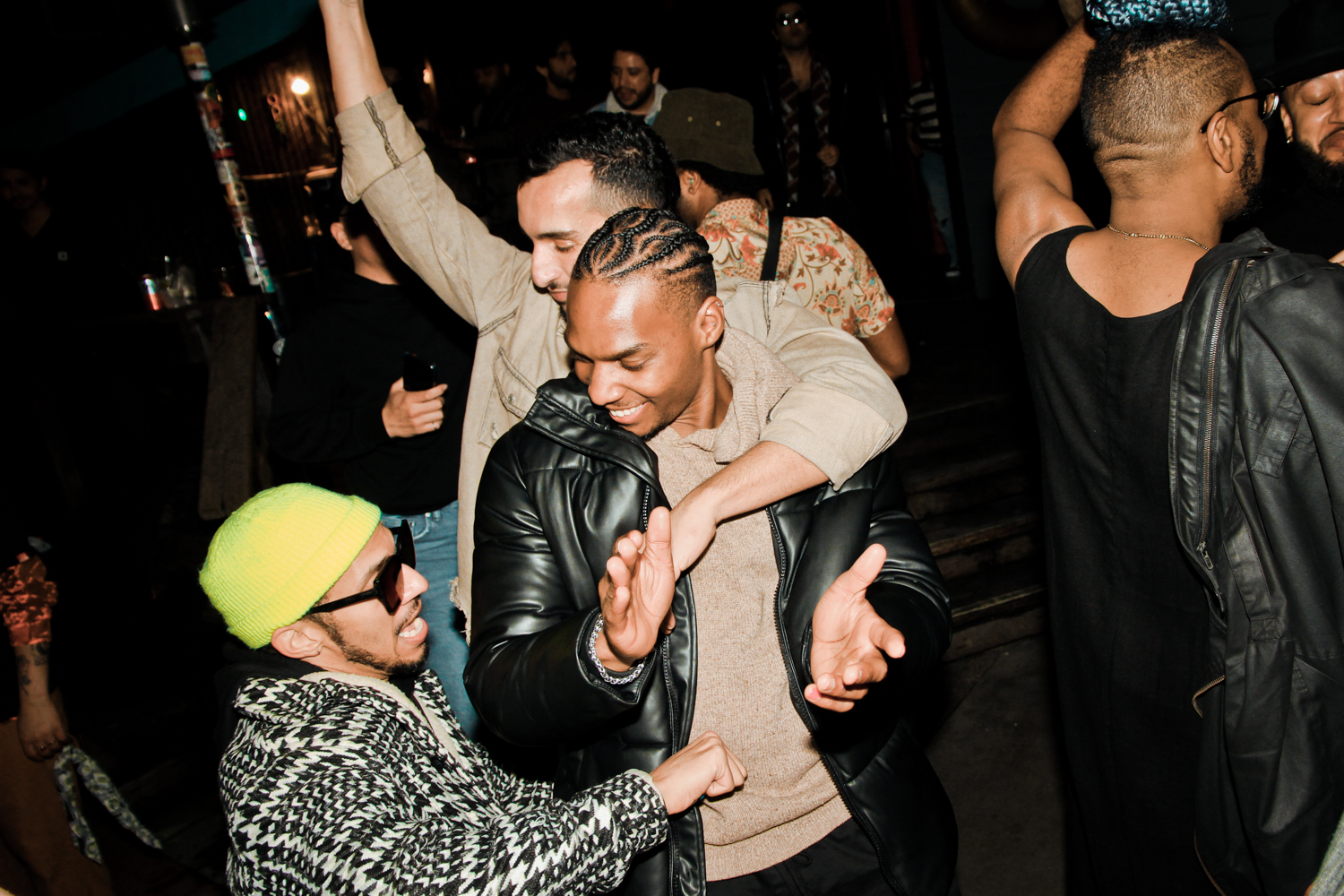O
n July 29, 2012, a family function was born on the patio of San Francisco’s El Rio.
Rapper MicahTron, who grew up in Hunters Point, struck a pose onstage in a silk bomber jacket, encouraging an ecstatic queer crowd sporting shaved sides, crop tops and improbably tight denim to “back it up, use it like a bumper.” Her set followed a wraithlike performance by Tosh Basco, formerly known as boychild, an art star of the freak-drag movement that enraptured the city. Basco entranced the audience in a neon-green look consisting of little more than fishnets and happy face stickers. The event’s co-mastermind Kelly Lovemonster generously distributed hugs and booty pops, ensuring a certain atmosphere in their whisper of a gray tank top.
“We did this because we wanted to support our community,” says Lovemonster, who is now living on the other side of the world in Australia. “I helped run and produce Swagger Like Us because I really thought this was an important space to hold.”
DJs played a joyful, aerobic collection of beats: Club-remixed R&B divas rubbed up against queer artists from niche subgenres of the nationwide hip-hop diaspora. The event’s namesake, the chest-out line from M.I.A.’s “Paper Planes” that Jay-Z and T.I. had spun into their own banger, boomed out over the lemon trees that flanked the neighborhood bar’s dance floor. No one on the corner has swagger like us, indeed.
Twelve years later, Swagger Like Us is now wrapping up its monthly format with a finale at El Rio on June 2. On a giggly, time-zone-spanning video call I had with the party’s two co-founders, Lovemonster brings up some thoughts occasioned by chapters on Black San Francisco in David Talbot’s history book Season of the Witch. “I was thinking about places like the Fillmore and thinking of Swagger as a space for Black folks, and Black queer folks in particular, to say that we still exist,” they say.
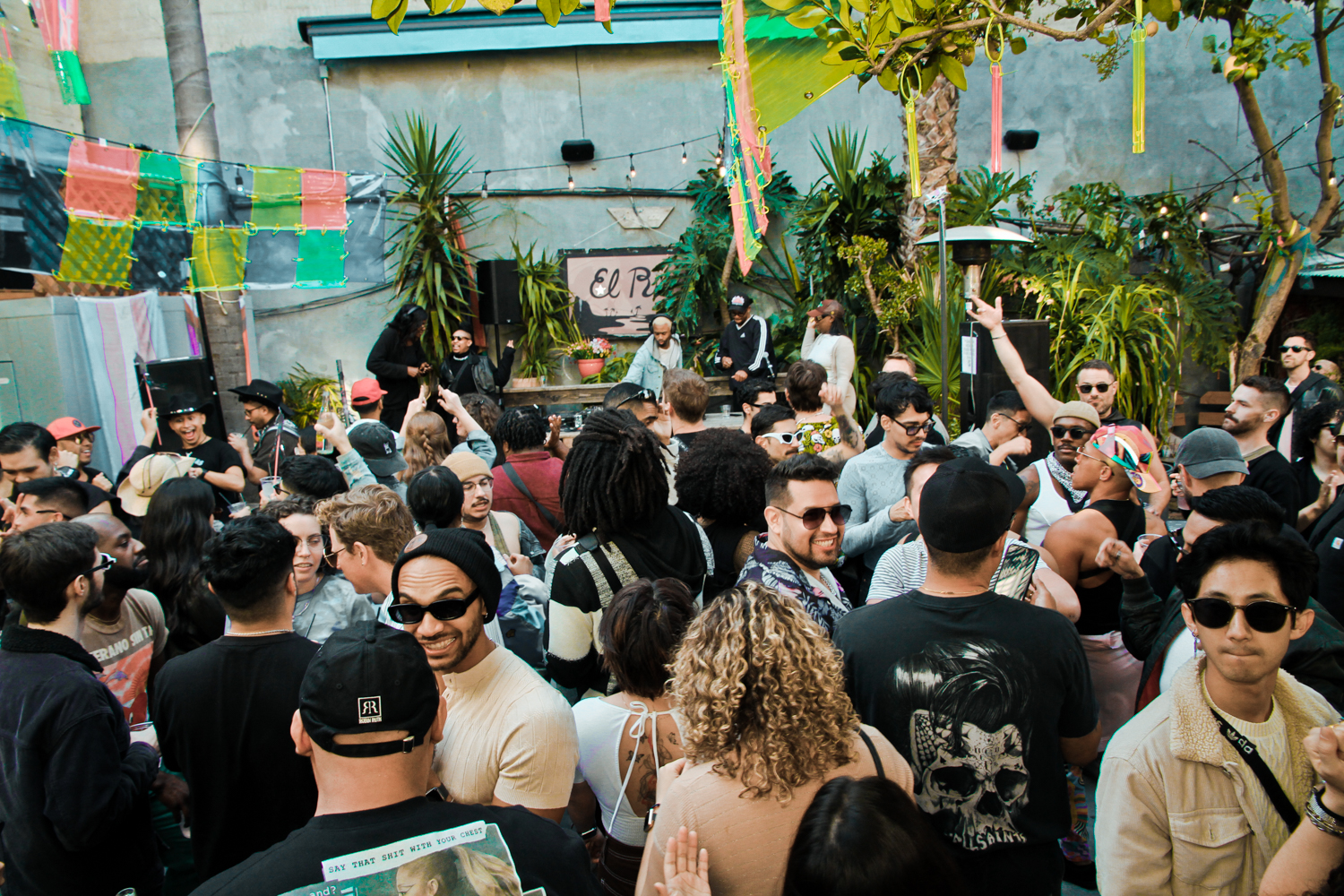
Aside from a truly significant decade-plus of supporting the financial viability of queer hip-hop artists, this may well be Swagger’s true legacy in a city that has largely failed to hold the line for its Black community. “A space for us to congregate, a space for us to celebrate,” they smile.
